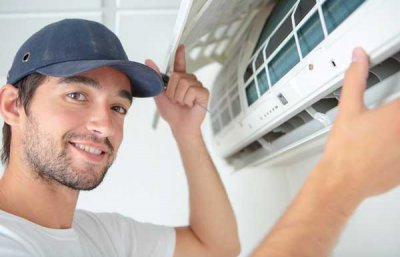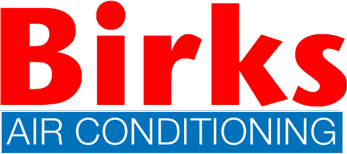Increasingly, businesses are turning to energy management systems to reduce the overall cost of heating and cooling their commercial buildings. More than 35% of all US buildings with 100,000 or more square feet use these systems and save a tremendous amount of money on their heating and cooling costs as a result. Even if you have a smaller commercial building, significant savings can be realized.
The main concept behind energy management is centralizing all energy-related decisions. For example, all heating, cooling and ventilation systems are placed on centralized timers and sensors. One terminal will tell you how much energy is being used and where you can reduce usage. Ideally, you can access these systems from any computer via a web login.
Approximately 30% of all commercial HVAC systems are improperly sized. It doesn’t matter if your system is too small or too large – the cost will add up quickly if you don’t have the right size in your building. Birks Air Conditioning will perform an in-depth audit at your request. In large buildings over 10,000 square feet, we’ll perform a heat load test and adjust as necessary to reduce costs without compromising your cooling needs. Having the right size system for your space will ensure it runs more efficiently, distributes even temperature control, and it will add to the longevity of your system.
Absolutely. Setting a schedule on a programmable thermostat can save you a significant amount of money on your air conditioning electric bill. Another benefit is that your air conditioning system isn’t working as hard when you’re not home, increasing the life of your system.
It is not recommended to wait to repair a freon leak. If your air conditioning system has a freon leak it can reduce efficiency, freeze the evaporator coil, and overheat the compressor. It is highly recommended to find and fix a leak as soon as possible to save yourself from costly repairs and highly electric bills.
Yes. We work with local municipalities to pull permits, bring in an adequate sized crane to hoist the unit and handle any details for a successful installation. If you opt for a rooftop unit, the size will depend on how much space you need to cool. Most major brands offer rooftop units in sizes ranging from 3 tons up to 150 or more tons. Options within this range are even adequate for large office buildings. We’ll consult with you to determine what type of cooling system you want and what extras, like building management systems, you would like included.
Your outdoor air conditioning unit should be totally free of obstructions. If you cover your condenser, the hot air that your unit is pulling out of your system can be trapped and the condenser will not operate at optimum efficiency.
SEER is an abbreviation for Seasonal Energy Efficiency Rating. The higher the SEER = lower cost of operation. SEER is a U.S. government standard energy rating and reflects the overall system efficiency of your cooling system.
The rating is a ratio of the cooling output divided by the power consumption and measures the cooling performance of the system. The Federal government developed an ENERGY STAR program for high efficiency central air conditioning systems; to qualify, it must have a SEER of at least 14.
Since January 2006, all residential air conditioners sold in the United States must have a minimum 13 SEER.
An EER is the Energy Efficiency Ratio and does not account for the “season” but rather the system’s energy efficiency at the peak operating use.
Both ratings should be considered in choosing cooling products.
In a split air conditioning system—the standard central AC found in most homes—the compressor is located in the outdoor unit. Its job is to circulate the refrigerant necessary for heat exchange through the coils of the indoor and outdoor unit, and also to apply the energy to the refrigerant. When you think of the air conditioner requiring power to provide cooling, you’re thinking of the electricity sent to run the compressor. (Electricity also powers the fans, although they do not provide cooling on their own, and can operate in “fan only” mode.)
A motor powers the compressor. The compressor in turn compresses the refrigerant and this raises the refrigerant’s temperature, changing it into a high pressure gas. The high pressure forces the refrigerant through a line that leads to the outdoor coil, where the refrigerant releases its heat and condenses into a liquid. The liquid refrigerant then continues its trip to the indoor unit, where the refrigerant evaporates into a gas again and absorbs the heat from inside your home. The refrigerant then returns to the compressor and the cycle starts again.
If you encounter problems with your AC’s compressor, or if it fails and you need to have it replaced, call Birks Air Conditioning at (661) 343-0069 without delay!
Air conditioners that suddenly make new noises or produce new smells should be checked right away. Other warning signs include an AC that’s running constantly despite temperatures under 100 degrees Fahrenheit, or blowing warm air into the room, or utility bills that spike in spite of normal usage.
Heating, Ventilation and Air Conditioning. It represents the entire heating & cooling system of a business or home — the duct work, air filters, humidification controls and registers.
The name brand of the equipment is not as important as the installing contractor so choose based on quality of service and not solely on price. The average life expectancy of a system is about 12 years so it becomes one of the biggest financial decisions you will make.
Another important factor replacing an AC compressor is that the duct system you are connecting to is sealed tight with the proper amount of return air.
Make sure your contractor conducts an energy audit to determine the right size unit for your building; otherwise, you could end up with a house that is cool but has high humidity.
A “ton” in air conditioning terms has little to do with the weight of the compressor so that’s a common misconception. One ton of refrigeration is the term used to refer to 12,000 B.T.U.s/hour (British Thermal Units/Hour) of cooling effect. Thus, a condensing unit with a cooling capacity of 60,000 B.T.U.s/hour is said to have a capacity of 5 tons.
Yes. Bigger isn’t always better. An AC unit that is too large for its intended space will run in frequent short cycles, preventing it from removing humidity properly from your structure and shortening its lifespan. Unless your old AC system has been found to be incorrectly sized, it is not recommended to go bigger.


